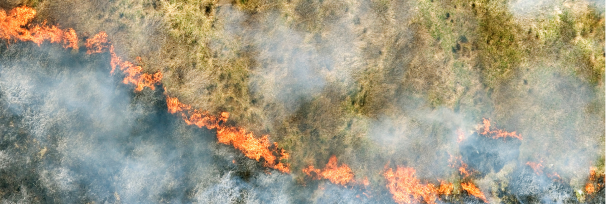
Air Quality Sinks as Climate Change Accelerates
An anticipated rise in the frequency, intensity and duration of heatwaves and an associated increase in wildfires this century is likely to worsen air quality, harming human health and ecosystems. The interaction between pollution and climate change will impose an additional “climate penalty” for hundreds of millions of people, according to a new report from the World Meteorological Organization (WMO).
The WMO Air Quality and Climate Bulletin 2022 focuses in particular on the impact of wildfire smoke in 2021. “As the globe warms, wildfires and associated air pollution are expected to increase, even under a low emissions scenario. In addition to human health impacts, this will also affect ecosystems as air pollutants settle from the atmosphere to Earth’s surface,” says WMO Secretary-General Prof. Petteri Taalas.
Air quality and climate are interconnected because the chemical species that lead to a degradation in air quality are normally co-emitted with greenhouse gases. Thus, changes in one inevitably cause changes in the other.
Future scenarios
If greenhouse gas emissions remain high, such that global temperatures rise by 3° C from preindustrial levels by the second half of the 21st century, surface ozone levels are expected to increase across heavily polluted areas, particularly in Asia. Most of the ozone increase will be due to an increase in emissions from fossil fuel combustion, but roughly a fifth of this increase will be due to climate change, most likely realized through increased heatwaves, which amplify air pollution episodes. Therefore heatwaves, which are becoming increasingly common due to climate change, are likely to continue leading to a degradation in air quality.
The World Meteorological Organization is the United Nations System’s authoritative voice on Weather, Climate and Water
For further information contact: Clare Nullis, WMO media officer, cnullis@wmo.int. Tel 41-79-7091397